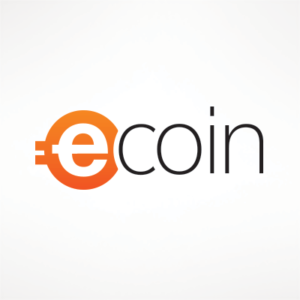E-Coin Scam Shut Down by Swiss Watchdog
Date Written: October 10 2017 Written By: George MillerSwitzerland’s Financial Market Supervisory Authorithy, or FINMA, is the latest European institution to take legal action against a cryptocurrency-based scam. Its target? E-coin, a ponzi scheme that abruptly closed operations in June, absconding with millions in “user” funds.
FINMA reported that E-Coin’s “developers” had been paid over 4 million Swiss Francs (roughly US$4.2 million). In addition to shutting down all remaining E-Coin operations, FINMA has taken legal actions that aim to bankrupt the criminals behind E-Coin.
E-Coin is the latest in a series of scam coins targeted by various European governments. In late August, Finnish police launched an investigation (still ongoing) against Onecoin. In the same week, an Italian consumer watchdog fined Onecoin to the tune of US$2.6 million.
Additionally, Ukrainian police arrested the founders of Swiscoin (another confirmed crypto-scam) on August 29th.
E-Coin Bore a Striking Resemblance to Other Known Crypto Scams
E-Coins, like Swiscoins and Onecoins, did not exist on any blockchain. In fact, none of them ever had or will have a blockchain. These were not crypto coins at all–they were merely the idea of coins, an abstraction of an already very abstract medium.
Therefore, when investors bought into any one of these scams, they were not actually being sold coins (as they were being told). Instead, their money was locked into a fake ecosystem and used as fake “returns” for the investors who got there before they did.
All of these MLM (multi-level marketing) schemes required users to keep their money within their respective ecosystems for some period of time–often months, or more. Users who were able to eventually withdraw their funds were given “returns” in the form of fresh cash from new “investors”.
When each of these scams was put to a stop (although Onecoin is still technically up and running, though under criminal investigation), it was the newest investors who suffered the most. As the fodder for the older investors and the people at the top of the pyramid, there were no funds to return to them at all. Victims of MLM schemes within and without of the cryptocurrency world often lose their entire investments.
Protecting Yourself From Fake Coins Is As Easy As Doing Homework
Well, doing homework is not always that easy. However, it is extremely important to do a bit of research on a coin before deciding to put your money into it. There are a few red flags that you should keep an eye out for when researching a new coin to invest in. Use these questions as a way to guide your investigation.
- Does this coin bind me into a situation that will not allow me to have access to my investment for a long period of time?
While there are a couple of legitimate cryptocurrencies that do incentivize or even require some kind of long-term investment (ie Steemit), giving away the rights to your funds for an extended period of time should raise some red flags.
- Who is behind this coin? What kind of technology is behind this coin?
Has the coin been created by a reputable member of the cryptocurrency community? Does the coin have a whitepaper that explains its technological inner workings? Are the creators and developers listed on the coin’s website? Often, scam coins masquerading as legitimate operations will not have any information about their technology or their developmental and business teams anywhere on their website. Red flag!
- Does this coin sound too good to be true?
The old adage is just as true (if not truer) in the world of cryptocurrency as it is in the rest of the world: if something sounds too good to be true, it probably is too good to be true. Scam coins reel their victims in with promises of eye-popping returns; however, they are never able to deliver–in fact, they are designed to fail, benefiting the people running the operation at the great expense of those who believed them to be trustworthy in the first place.
Regulations, Crackdowns on Scams Are Making Crypto Safer
Up until very recent history, the world of cryptocurrency has essentially been completely unregulated. It is only since cryptocurrency markets have veritably exploded within the last year that the governments of the world have started to realize that taking some kind of legal action may be necessary to establish authority and protect their citizens.
While regulations are certainly underway is most of the developed world, there are still plenty of scammers who see the demand for successful cryptocurrencies as a quick way to fill their pockets. Although the legal landscape is quickly changing, much of the crypto world still exists within a sort of legal grey-zone. Therefore, personal responsibility is imperative. Protect yourself and your funds, and research your investments well. It will be worth it.



